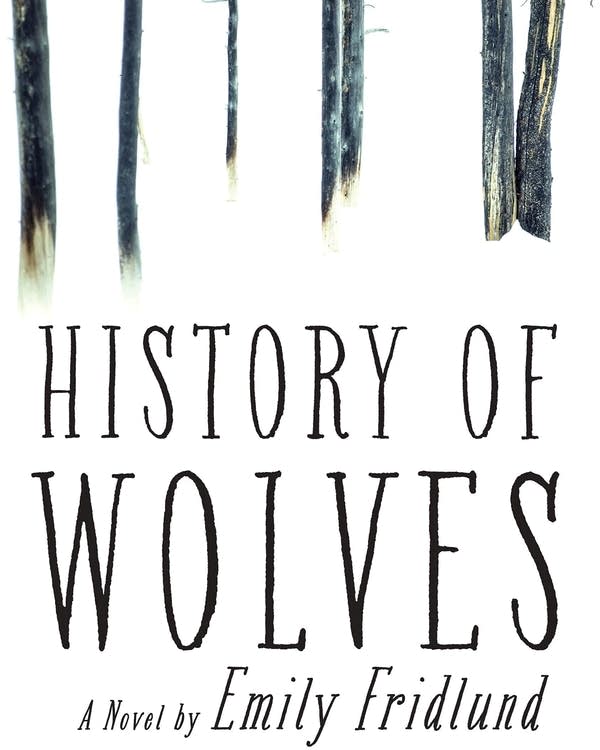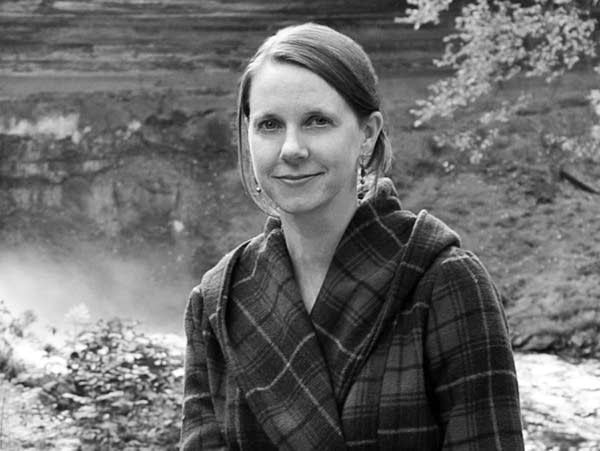'History of Wolves' debut sets author at head of pack
Go Deeper.
Create an account or log in to save stories.
Like this?
Thanks for liking this story! We have added it to a list of your favorite stories.

The only wolves in Emily Fridlund's debut novel, "History of Wolves," are human.
The story of a teenage girl in a northern Minnesota town is engaging and shocking as the central character lives through a preventable tragedy.
Critics are hailing her as a new literary voice.
Linda, the central character in "History of Wolves," is smart, Fridlund says. And very observant. She has to be, because she's one of those 14-year-old girls people pay no mind.
Turn Up Your Support
MPR News helps you turn down the noise and build shared understanding. Turn up your support for this public resource and keep trusted journalism accessible to all.

"She's such an outsider in her world, she has to watch the world to ... get along," Fridlund said.
Linda lives in a small northern Minnesota town, having been brought up on a failed commune led by her parents. While she's a good student in school, she's seen little of the world.
"And this curious combination of incredible canniness and innocence, or ignorance, was really interesting to me," said Fridlund. "So she sees a lot and is also blinded to a lot, and I wanted to play with that as a writer."
This is how Linda describes her hometown, Loose River, in the opening chapter of the book.
"Downtown went: diner, hardware, bait and tackle, bank. The most impressive place in Loose River back then was the old timber mill, I think, and that was because it was half burned down, charred black planks towering over the banks of the river. Almost everything official, the hospital, and DMV and Burger King and police station, were twenty-plus miles down the road in Whitewood."
Fridlund, who grew up in the Twin Cities, said "History of Wolves" grew out of a short story she wrote in frustration at UCLA. The prof assigned workshop participants several famous novels in which an older teacher fixates on a young girl.
"So the initial story idea sort of came out of a desire to write about a girl who has not been transformed into a sexual object, a kind of lonely awkward teenage girl and her experience with a teacher," she explained.
In Fridlund's story it is the awkward girl who tries to kiss a teacher, an uncomfortable situation upon which Fridlund piled an unexpected backstory. When, years later, Fridlund decided to write a longer project, she returned to the awkward Linda.
Her short story is the opening chapter. Then she loads more twists onto the tale.
"And at some point I decided that I wanted to tell a story that asked similar questions about thought and action and witness and responsibility, but in an entirely different context," she said. "And that is where the Gardner family came in, and they do end up being the most essential part of the book."
The Gardners move into a house across the lake from Linda. At first it's just the mom, Patra — short for Cleopatra — and her 4-year-old, Paul. They are waiting for Leo, the college professor husband and father, to wrap up some work and join them in a few weeks. Patra offers Linda a job babysitting Paul. It seems like the setup to an idyllic summer, but it's actually leading to a tragedy — a tragedy made worse by its being easily preventable.
"I wanted to think about how somebody like Linda, who wants badly to belong and to find a place, might allow herself to not see clues or hints about that tragedy as events lead up to it," said Fridlund.
Fridlund said she doesn't see storytelling as necessarily linear. She presents Linda's tale looking back from different points in her life as she still wrestles with what happens.
Fridlund will read from the book at 7 p.m. Tuesday at Magers & Quinn Booksellers in Minneapolis.
Critics have praised her use of precise and seamless language to tell her emotionally wrenching story. "History of Wolves" may well leave readers asking uncomfortable questions about their own lives.
Fridlund does not see her characters as evil, but as ordinary people who have lost their ability to see that someone needs help.
"I really don't think of any of the characters as admirable, but also not — none of them, I don't think, are particularly awful either," she said.
They are just human. Which in a way makes it worse.


